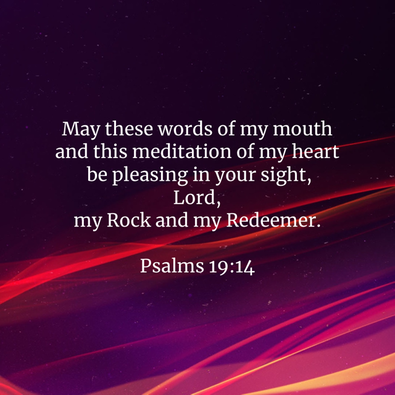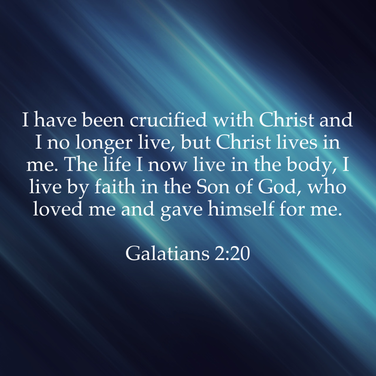|
Good morning!
We're so glad you chose to join us today!
When we meet in person, we share our joys and concerns with each other. If you have prayer requests to share, you can add them to the comments on this post. When you are ready, use this prayer to get started.
Lord, many people and churches are going through difficult times right now, times of suffering and uncertainty, of concern and doubt. Some are experiencing personal loss and grief. Some are worried about what the future holds as society changes and as people lose interest in the organizations that used to bring us together.
Help us not to lose hope, Lord. Help us to remember that people of faith have gone through difficult times in the past. Help us to remember that you are a God who is always creating new realities for us and for our world. Looking for that new creation, we pray for the needs of our community and our world. In Jesus’s name. Amen.
This week's lesson is on Isaiah 65: 17 - 25.
Introduction
When we go through difficult times — times of uncertainty, loss and suffering — it can seem like the end of the world. It can seem as if hope is gone and we will never find happiness or the contentment we once envisioned for our lives. Such times are discouraging. But as people of faith, we believe that God can turn our situations around. Therefore, we should never lose hope completely. In 609 BC, the Babylonians captured Jerusalem and the southern kingdom of Judah, and in 597 BC and 586 BC, they took the leading citizens into captivity in Babylon. They destroyed the temple and the walls around Jerusalem, and it looked as though God’s chosen people might never return to their land. It seemed as though the Jewish people might fade from history. (The northern kingdom of Israel had already been conquered and assimilated by the Assyrians many years earlier.) Looking back, the prophets saw the Babylonian captivity as God’s punishment for the people’s idolatry and their lack of care for the poor. But in these final chapters of Isaiah, which includes today’s scripture, God speaks through Isaiah and promises restoration and renewal.
Celebrating Newness (verses 17-19)
From New Testament passages such as 2 Peter 3:13 and Revelation 21:1, we see the biblical vision of God ushering in an entirely new creation at the end of time. However, when this passage speaks of God creating “a new new heavens and a new earth,” it does not refer to that event, at least not directly. Instead, it refers to “a radically different future reality” for the people who were returning from captivity in Babylon. Instead of being dominated by foreign powers and instead of living in rebellion against God, the people would live in peace and prosperity, Isaiah proclaimed. To the people of that time, this would have seemed like a new creation. It would have been almost unimaginable and even impossible. And without God’s intervention, it would have been. When that time comes, Isaiah says, the people will forget about the suffering and separation that they experienced in captivity. That is because something better and more important will have replaced it in their minds. This will be a new age with a new reality. Through Isaiah, God invites the people to celebrate God’s new creation in that age. Jerusalem — the place where God had connected with the people before it was destroyed — will be recreated. And God will join in the celebrations, and once again God will take delight in God’s people. The scene will be of joy, and tears and sadness will be a fading memory.
The New Reality (verses 20-25)
Isaiah expands on the blessings that God’s new reality will engender. Unlike during the hard times of captivity and war, people will be expected to live long lives. Infants will no longer die. So common will it be that even people who fail to reach 100 will be considered cursed. Also unlike the people who were forced into captivity, they will be able to live in the houses they built. They will also plant vineyards and stay to eat the fruit. Instead, the captives were living many miles from the homes they had built, while others took residence in their homes. In many cases, their fields and vineyards simply became the abode of wild animals and wild vegetation. All was left to whoever happened to discover it or, if no one did, to the wildlife.
Someone Else’s Home
When I was a junior in college, I got a summer internship in the US House of Representatives. I didn’t have much notice. I found out I had gotten it at the end of one week. and I told I was to be at work the next Monday. It was an opportunity that I did not want to pass up. So I bought a bus ticket and arranged for my uncle, who lived near Washington, DC, to meet me at the station. We spent the day driving around the city looking for an apartment. After going to several places and finding nothing available, at least that I could afford, we happened to meet a woman at Georgetown University who was just about to post a notice for an apartment that was available. We followed her to the building. and she showed us the room. It was a terrible place, with mattresses stacked in the middle of the floor for a bed and drawers that did not fit the dresser. But the day was almost over and the price was within my budget. I took it. My biggest concern, though, was that it appeared someone else might still be living there. There were stacks of books around the room, clothes in the closet and food in the refrigerator. Beside that, the landlady did not give me a key, but I had to wait for her to come and open up the door for me each evening. As I lay on the mattress under the single bare bulb that illuminated the room, I lived in constant concern that someone might come in one night and say the room was his. Who was this person? What happened to him? If he came back, what might he do? Those who took up residence in the rural areas of Judah may have wondered about the people who had left their homes and fields so quickly as well. Who were they? What caused them to leave so quickly and to abandon their homes and property? They probably didn’t expect them to return to their homeland. But one day, through God’s intervention, they actually did. In the new reality that God is bringing for the people of Judah, the people will reap the benefits of their labor and their children will be blessed. Not only that, but God will be so close to the people and so responsive to their needs that God will answer their prayers before they even say them. This contrasts to how God had turned away from the people in the past. Because of their mistreatment and neglect of the poor, the widows and the orphans — the most vulnerable of society -- God turned away from them. When we make God’s priorities our priorities and set aside our own selfish needs, it is easy for God to answer our prayers. Our passage concludes with a statement that represents the ideal for God’s creation and for God's people. It is a vision that we should have, even though it always eludes us. Wolves and lambs will live together, Isaiah says, and lions will be satisfied with vegetables and grain. No one and no thing will prey on another in this new reality. This has been called the vision of “the peaceable kingdom.” This ideal kingdom was not realized when the captives returned, and it has never been the reality throughout history until now. But it calls us to pursue righteousness and peace beyond what we even imagine possible.
Conclusion
Isaiah 65 is a visionary text that should inspire its readers to see beyond both past failures and the seemingly valid temptations of the present. It invites us to imagine a different world than the one we inherited, a world in which old wounds will be healed and the God-given talents of all are used to bless others. This text offers a vision of a world in which the communication between God and humanity remains open, free, and life-giving. Reading a visionary text means we have to think creatively in a biblical way. Such texts call us to use our imaginations so we can begin to see what God might be creating in our lives as individuals and churches. In such a vision, God is the one who does the recreating. The language of creation does not apply just to the beginning of time but to a new era that can emerge when people who have experienced God’s mercy embrace the possibilities of new and holy ways of life. The text of our lesson advances that move in a dramatic way. It does not portray the citizens of Jerusalem and Judah as being able, by their own power, to bring about the new world God seeks. Sometimes they fall back into the same sins that led their ancestors to lose their homeland. So if a new situation were to come about, God must be the one to bring it about. This vision of an alternative world continues to exert enormous influence on Christians today. Texts like this remind us that the current reality is neither inevitable nor the full expression of God’s plans for humankind. More is possible. Imagining that something more, and celebrating even small hints of its arrival in our everyday lives, makes the community of God’s people what it is. Prayer Creator God, who made the heavens and the earth and everything in them, create in us new hearts, new hands, and new feet so that we may think as you think, do what you give us to do, and go where you call us. Take from us the tendency to think too small and to shrink back in fear. We ask this in the name of the one who has promised to her in a new heavens and a new earth, your Son, Jesus Christ. Amen.
Questions for Discussion
Benediction
Today's benediction is from the New International Version.
Next week's lesson is on Ezekiel 37:21-28.
0 Comments
Leave a Reply. |
AuthorWe are a small, rural Presbyterian church in southwestern Pennsylvania. Archives
July 2024
Categories
All
|



 RSS Feed
RSS Feed